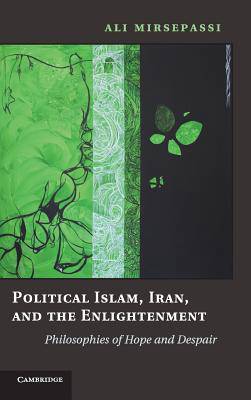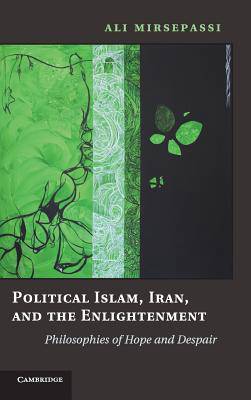
- Afhalen na 1 uur in een winkel met voorraad
- Gratis thuislevering in België vanaf € 30
- Ruim aanbod met 7 miljoen producten
- Afhalen na 1 uur in een winkel met voorraad
- Gratis thuislevering in België vanaf € 30
- Ruim aanbod met 7 miljoen producten
Zoeken
Political Islam, Iran, and the Enlightenment
Philosophies of Hope and Despair
Ali Mirsepassi
Hardcover | Engels
€ 172,95
+ 345 punten
Uitvoering
Omschrijving
Ali Mirsepassi's book presents a powerful challenge to the dominant media and scholarly construction of radical Islamist politics, and their anti-Western ideology, as a purely Islamic phenomenon derived from insular, traditional, and monolithic religious "foundations." It argues that the discourse of political Islam has strong connections to important and disturbing currents in Western philosophy and modern Western intellectual trends. The work demonstrates this by establishing links between important contemporary Iranian intellectuals and the central influence of Martin Heidegger's philosophy. We are also introduced to new democratic narratives of modernity linked to diverse intellectual trends in the West and in non-Western societies, notably in India, where the ideas of John Dewey have influenced important democratic social movements. As the first book to make such connections, it promises to be an important contribution to the field and will do much to overturn some long-held and pervasive assumptions about the dichotomy between East and West.
Specificaties
Betrokkenen
- Auteur(s):
- Uitgeverij:
Inhoud
- Aantal bladzijden:
- 240
- Taal:
- Engels
Eigenschappen
- Productcode (EAN):
- 9780521768825
- Verschijningsdatum:
- 6/12/2010
- Uitvoering:
- Hardcover
- Formaat:
- Genaaid
- Afmetingen:
- 157 mm x 229 mm
- Gewicht:
- 439 g

Alleen bij Standaard Boekhandel
+ 345 punten op je klantenkaart van Standaard Boekhandel
Beoordelingen
We publiceren alleen reviews die voldoen aan de voorwaarden voor reviews. Bekijk onze voorwaarden voor reviews.











